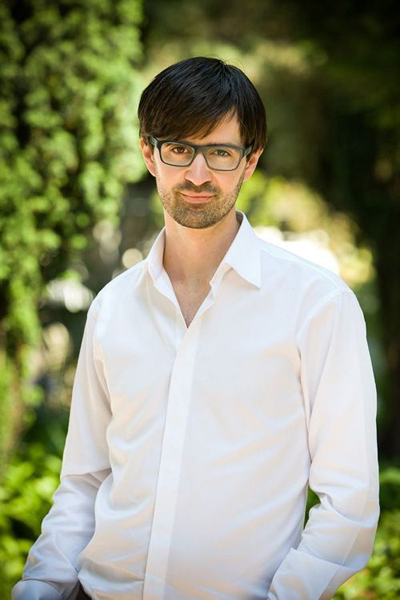
Some people might look back on their childhood and remember CapriSun pouches and fluorescent cupcakes, but Nathanael Johnson just remembers a lot of brown rice and kale.
Johnson spoke at SUNY New Paltz to discuss his book, “All Natural: A Skeptic’s Quest to Discover If the Natural Approach to Diet, Childbirth, Healing, and the Environment Really Keeps Us Healthier and Happier.” The event was hosted by Alexandra Cox of the
Sociology Department.
Johnson, a California native raised by “West coast hippies” said his childhood inspired the book. He grew up eating all natural food in an outdoorsy, nurturing environment.
Johnson said he associates his childhood innocence with living a natural life. In his book, he revisits scenes from his childhood with the cynical eye of a journalist and an outsider.
“A lot of what’s been written about this stuff is polarized — it’s either totally credulous or totally dismissive,” Johnson said. “And I wanted to ask, ‘Is nature healthier?’ in a way that was both rigorous and gentle.”
Johnson said his book is in some ways a sociological study of the community of hippies, modern concern of ecological anxiety and excessive conventional medicine he grew up in. In the book, he explores what he calls the “technological perspective” and the “natural perspective.”
While the technological perspective is narrowly focused on data, the natural perspective encompasses a larger overall view. Johnson argues that the world needs both.
“I found over and over again in this research that often there isn’t an easy solution,” Johnson said. “Usually, even if you can look at all the science, it’s very unclear what to do. This book is also about figuring out how to deal with the fact that the sum of our ignorance is always greater than the sum of our knowledge.”
When Johnson found out he was having a daughter, he began to think back on his childhood and figure out if he wanted to raise her “embracing nature,” as his family had.
He said he applied scrutiny and research to issues that were important to him, everything from childbirth to genetically modified organisms.
He immersed himself in peer-reviewed journals and made about 200 phone calls per topic in the book, he said.
“The answer I found was that it’s a mixed bag,” Johnson said. “There are some real pieces of wisdom in following nature, and there are some ways in which it leads to madness. And all of that is reflected in my life now.”
Johnson’s life incorporates both the natural and technological perspectives. For instance, his daughter’s birth was in a hospital, but with midwives. He also eats mostly organic food.
Johnson said it’s possible to reach a middleground between nature and technology, especially for food.
“We use the technology where appropriate, but we also have to figure out how to bring it into harmony with natural processes,” Johnson said.
Johnson said science is a “huge part” of the book and that he followed the evidence. But he realizes that sometimes the research reveals more about the people making the decisions than the results themselves.
“I think that people like me who are drawn to the idea of a natural lifestyle don’t really make a choice — there’s something at the core of our being that inclines us to be interested in…the bigger, holistic picture,” he said. “I think that we are biased in one direction or another from the beginning and we rarely are making a rational choice about this.”

